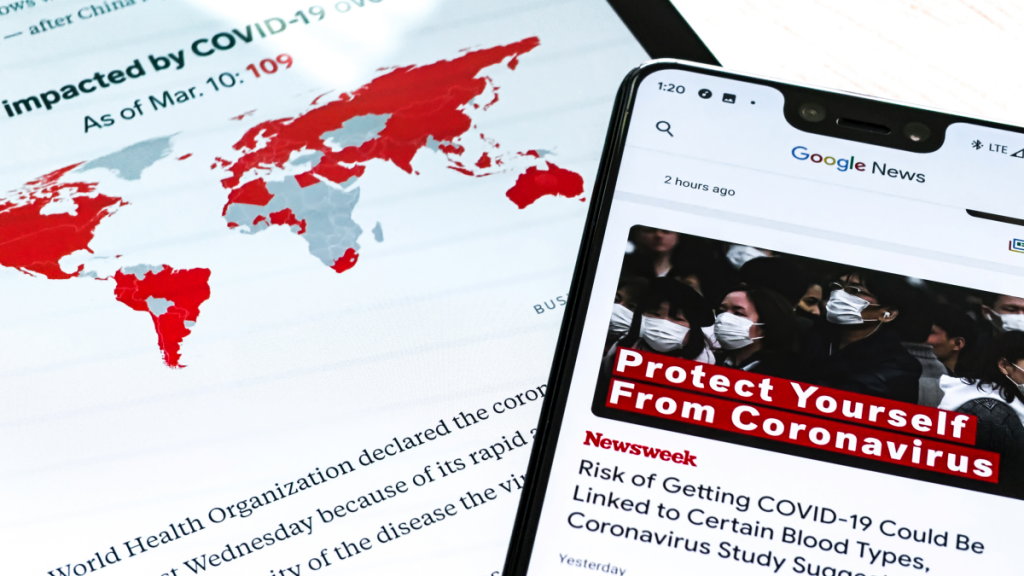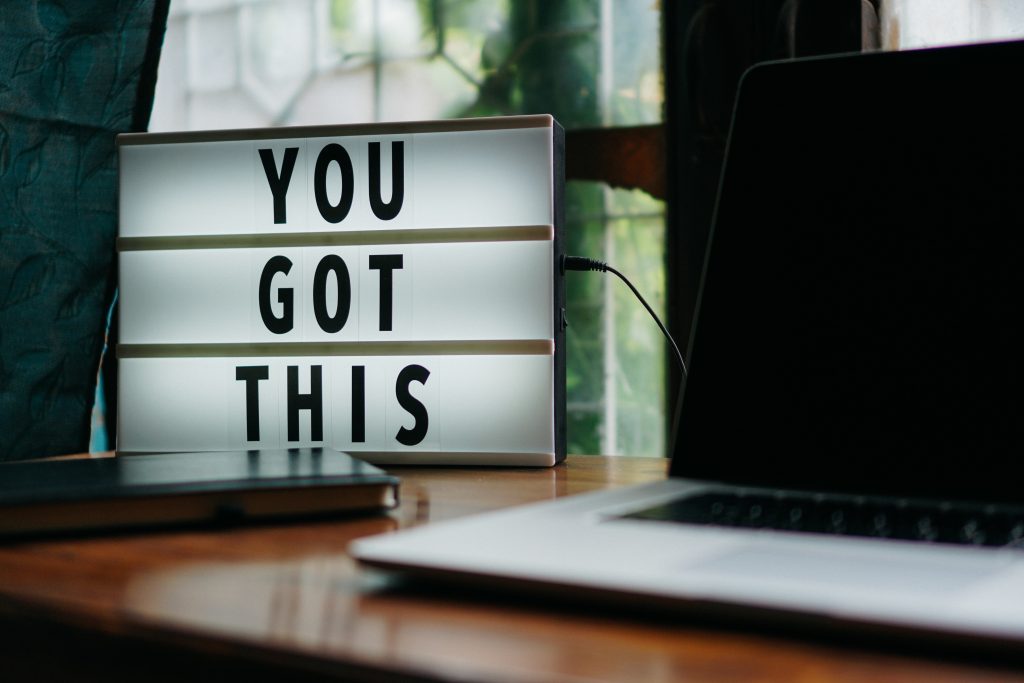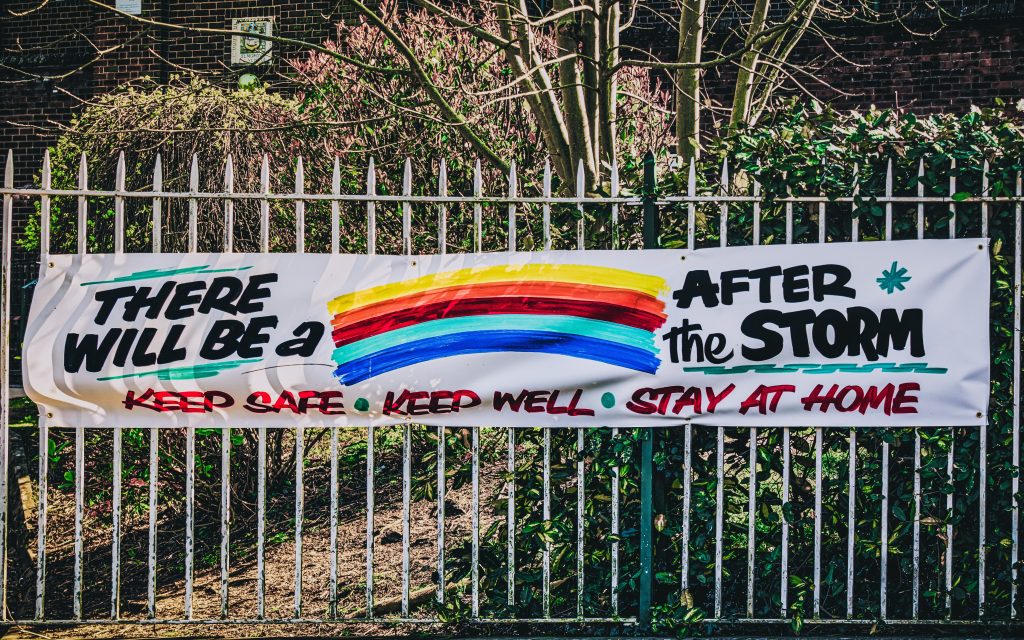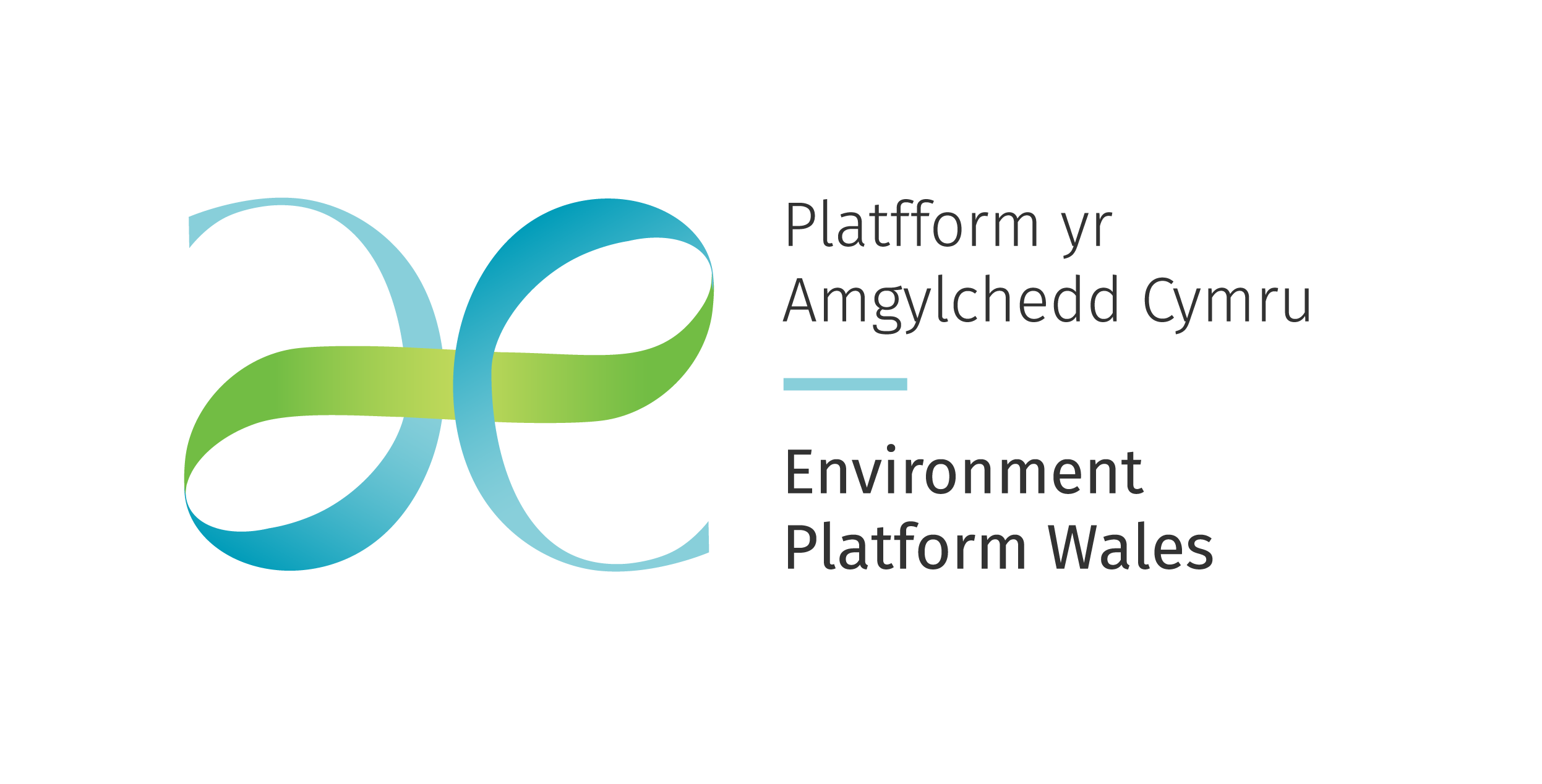by Gemma Treharne-Foose

It would have been unimaginable just a few weeks ago to experience what we are experiencing now. Businesses, schools, universities and public spaces all closed. Citizens on lockdown and our daily movements severely restricted. In tandem with all this of course, work programmes, schedules and plans all out the window. There’s nothing like having the rug pulled from under your feet to test your resolve.
Many of us are lucky in academia and research institutions to be able to continue working (and earning) during this crisis. But with all this in the mix, we’re surviving in a time when our outputs and deadlines are constantly changing. Among these shifting sands, we’re grappling with new technology, communicating with audiences in a new way, getting the message right and perhaps even re-designing our core ‘products’.
We’re all out of our comfort zone, but knowing the right way to pivot in a crisis could make the difference between sinking or swimming.
With a real-time public health crisis unfolding, it has once again highlighted the importance of communication. Past pandemics have repeatedly shown the importance of rapid crisis communications and numerous reports in recent weeks have drawn comparisons between the way the current crisis is being responded to and the way that the climate emergency is handled (or rather not handled) by leaders across the world. What if we were able to mobilise and harness public attention to better protect the environment and the planet? Could all this disruption be the incentive needed to finally take firm action on tackling the climate emergency?

Why science comms is crucial
Just a few weeks ago, as the UK Government was pressured to change course amid their early ‘herd immunity’ approach to COVID-19, more emphasis was placed on the modelling exercises set out by government advisors and experts drafted in from Imperial College London. The UK Government’s previous insistence that they would rigidly stick to their original plan looked less convincing, reckless even. The science had spoken, yet they were still slow on the uptake to change the course their approach.
“Science isn’t effective until it’s communicated…”
Sir Mark Walport, UK Government Chief Scientific Advisor 2013-2017, CEO UKRI
It speaks of wider issues we have in the scientific community about being heard, about our expertise and knowledge being undervalued. As we heard from UNESCO Geoscience Chair Prof. Iain Stewart at our official launch last year, our work has its biggest impact when it’s communicated simply and with purpose. For something to gel with the public, it needs to have a compelling, convincing narrative that will stick in the mind – a story that will have emotional resonance with them and their lives. During a public health crisis, governments can’t afford to have convoluted messages.
UK Government stuck to the rule of three, like all good campaign slogans and speeches. “Stay at Home. Save Lives. Save the NHS.” Some communications professionals even questioned the use of the term ‘social distancing’.
Indeed, even after lockdown measures were introduced in the UK, members of the public have remained sceptical – even laissez faire about social distancing measures. Overwhelming scientific evidence isn’t always enough when people have a fixed viewpoint or a loose understanding of the recommendations to protect their own lives and the lives of others.
As Peter Bickerton from the Earlham Institute points out: there’s no better example of the pressing need to up the ante on science comms than the fact that despite the best efforts of Copernicus, half a millennium ago, a portion of the world’s population is still convinced that the sun rotates around the earth. This and the fact that despite Darwinism’s 150th birthday, this theorem is besmirched by many, with only 41% of the population of 23 of world’s richest nations believing in the idea that we are descended from ape-like ancestors.
Combined with toxic divisive politics, never ending news cycles and ‘fake news’ obsessed world leaders, we really need to do better, to shout louder. COVID-19 has only intensified the need for us to pick up the pace with the way we communicate – and make this an essential component in our work.
“Scientists, whether we like it or not, have a duty to shout about our research – and not just in the echo chambers of twitter or science conferences…”
Peter Bickerton, Earlham Institute
Pivoting in style
Closer to home, local cafes and restaurants are finding out very quickly that those of us who are in tune with online payment capabilities and a strong social medi following are better equipped to change tack and pivot when things get tough. Restaurants quickly became take-aways and delivery services, food box providers and lifelines for people at home isolated or without a way of travelling to a supermarket. Local groups and networks pooled resources and mobilized to support NHS front line workers, supplying everything from toiletries and Easter eggs to meals to ‘help feed the NHS.’
In Cardiff University, the School of Medicine and the School of Pharmacy have mobilised to pursue research that will help slow the spread of the virus both by developing innovative methods of rapidly disinfecting contaminated environments such as ambulances, allowing them to be re-used more quickly, and by finding ways to make it more difficult for the virus to spread from person to person.
Swansea University has also played a role in assisting efforts to relieve the rampant effects of the virus, with Swansea departments pooling together to make 5,000 litres of hand sanitiser per week for frontline staff, supporting a new consortium (SWARM) to coordinate available industry, manufacturing and design capacity in south wales to support the NHS supply chain. In addition to this, medical and midwifery students have volunteered to join the front lines early.
Universities including Cardiff and Bangor have given over parts of their estate to help fight the COVID-19 response, including Bangor’s Canolfan Brailsford, which is providing around 250 additional beds for the NHS as part of the partnership between Bangor University and Betsi Cadwaladr University Health Board.
University of South Wales Clinical Simulation Centre has played a key role in the effort to fight the pandemic by helping to prepare nurses from the local health board area to care for individuals who are seriously ill and provided vital PPE (personal protective equipment) to Cwm Taf University Health Board, to be used by staff at the Royal Glamorgan Hospital.
These are testing times, but we will no doubt look back upon them with a renewed sense of respect and wonder for the NHS and all who work within the UK’s flagship institution.

So, should I mention the C-word in my external communications?
As daily news continues to unfold a fresh stream of catastrophe in front of our eyes, it seems almost insulting and trivial to try and cut through this noise to communicate an agenda. To what degree is it appropriate to disrupt this? How much should you talk about COVID-19 (the ‘C’ word) in your external communication and marketing? Would it be a help, a hindrance or even an irritation for people to see your message at this time when everyone from National Express to Nissan are issuing mass emails to their e-mail lists talking about how THEY are handling the crisis?
Guto Harri, a Welsh broadcaster and communicator who coincidentally was Communications Chief for Boris Johnson during his stint as London Mayor has some refreshingly candid advice to ponder upon.
“When there is only one story in town, most will struggle to be part of the script. Some may relish the chance to lie low and take advantage of the global preoccupation with an omnipresent microscopic menace. But beware. As always, silence is a choice, even as a default born of indecision. Handle this wrong and you risk losing customers and clients, demoralising staff and slipping towards obscurity and irrelevance. Handle it well, with vision, purpose and clarity and this crisis could energetically recalibrate your communications…”
Guto Harri, political commentator, advisor and presenter
There really is no ‘secret sauce’ for this. Brands, organisations and businesses need to think about the value they offer and how they help solve a problem for their audience before leading with their agenda. In a University context, this should focus on support, advice, guidance, addressing some of the anxieties this situation is provoking. It’s perfectly fine to fine-tune your communications to make sense of the situation and explain how your services can/will be impacted.
A recent Kantar survey showed that people DO want brands and companies to be more helpful during a health crisis. Marketing professionals have observed that email open rates were extremely high in the month of March 2020 – comparable to Black Friday 2019 open rates. So, people are reading and when the storm passes it will have made a difference that you were visible during the difficult times. But sriously – don’t send e-mails and updates for the sake of it.
Now is not the time to look for new fans and followers but focus on enhancing existing relationships.

So what now for Environment Platform Wales?
Events are a big part of our offering and we’ve been shaping our work programme around signature conferences and workshops as we build our young brand. But one after another in recent weeks, summer show staples announced the cancellation and postponement of their events – the Royal Welsh and the National Eisteddfod here in Wales along with Wimbledon, Glastonbury and thousands of other live events across the UK. In University circles, we are better equipped than most to make the best of a bad situation. Virtual conferences may be novel and seen as ‘second fiddle’ to the real thing, but they aren’t unheard of.
We’ve had great feedback from those who’ve already hosted events online in the last few weeks including CAST and we’ve also been in discussions with two companies who specialise in creating virtual environments for conferences. But like others, we’re still learning to adapt and be agile in a situation where the situation is still very fluid. We’re a small team with limited resources, but it’s up to us to pivot and make sure we keep delivering value to our members and supporters.
Sometimes there’s no substitute for face-to-face contact but beyond that, we must agree that hosting events in a similar vein to how we all did before was perhaps not the best approach for a collective of organisations all committed to the idea of low carbon emissions and sustainability.
COVID-19 is forcing us to see things differently – how things could be, if only we adjusted our thinking. It’s truly a time for reflection, and we’re now focused on the positives to be had in casting our net further – bringing people into a virtual environment who perhaps we perhaps might not have approached before.
There are no limits to the possibilities in terms of the technology available to us for being creative and collaborative, but it’s up to us to play catch up, to be seen or to slink away. To sink or swim.
Follow Gemma on Twitter: @GemmaTreharne
We’re looking for sponsors to help us host this year’s Environment Evidence 2020 conference: Resilience of the Welsh Uplands, an Evidence Perspective and we’re now accepting abstracts for the conference. Abstract submission close on April 30th.



